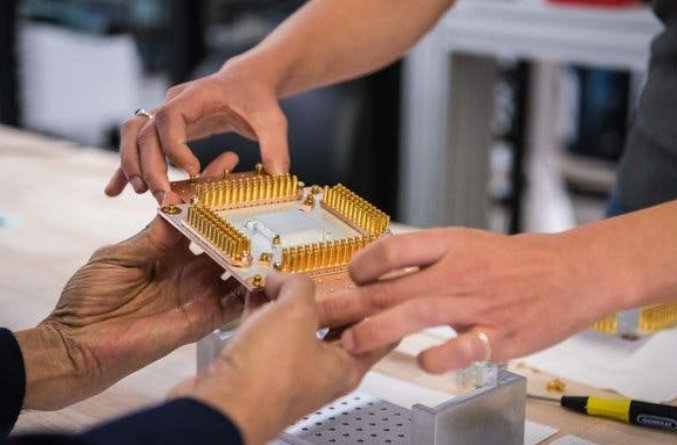
Google said that it had achieved a breakthrough called “quantum supremacy.
” Credit…Google
Quantum computing is a national security priority, and a big focus of competition in the technology industry.
This was not just any math problem.
Recently, Google said its researchers had performed a calculation that the largest supercomputers could not complete in under 10,000 years. And they had done it in 3 minutes 20 seconds.
With that calculation, the company said, its research lab in Santa Barbara, Calif., achieved a milestone that scientists had been working toward since the 1980s — a breakthrough called “quantum supremacy” that could allow new kinds of computers to do calculations at speeds that are inconceivable with today’s technology.
The long-sought breakthrough could have implications for national security and cryptography and even pave the way for the creation of new medicines. Here’s what you need to know about quantum computing and the importance of Google’s claim.
China and the U.S. see it as a matter of national security.
Like all leaps in technology, quantum machines are a double-edged sword: Someday, they could power advances in artificial intelligence. But they could also overwhelm the encryption that protects computers vital to national security or even the e-commerce sites we all use every day.
Because of that, the governments of the United States and China consider quantum computing a national priority.
China is spending $400 million on a national quantum lab and has filed almost twice as many quantum patents as the United States in recent years. The Trump administration followed suit this year with its own National Quantum Initiative, promising to spend $1.2 billion on quantum research, including computers.
As the machines get better over time, they could help improve cryptography, or even aid in the creation of new medicines or materials, said Daniel Lidar, a professor at the University of Southern California who specializes in quantum computing.
And as some scientists work on quantum computers, others are devising security techniques that could thwart their code-breaking abilities.
The Race Is on to protect data from the next leap in computers. And China Has the Lead.
Big Tech companies are trying to dominate the field.
It’s notable that the breakthrough didn’t come from the U.S. government, or a university, but from a company best known for its email platform and internet search engine.
In recent years, many of the tech industry’s biggest names, including Microsoft, Intel, IBM and Alibaba, have been vying for dominance in quantum computing. And venture capitalists have invested more than $450 million into start-ups exploring the technology, according to a recent study.
Google announced its breakthrough in a paper published in the science journal Nature. And its claims have raised the hackles of researchers at competing companies who believe the Silicon Valley giant is inflating its accomplishment.
In a blog post, IBM disputed Google’s assertion that its quantum calculation could not be performed by a traditional computer. The calculation, IBM argued, could theoretically be run on a current computer in less than two and a half days — not 10,000 years.
As its paper was published, Google defended its work, arguing that it has already left classical computers behind and entered a “totally different trajectory.”
“We welcome proposals to advance simulation techniques, though it’s crucial to test them on an actual supercomputer, as we have,” a Google spokesman said in a statement.
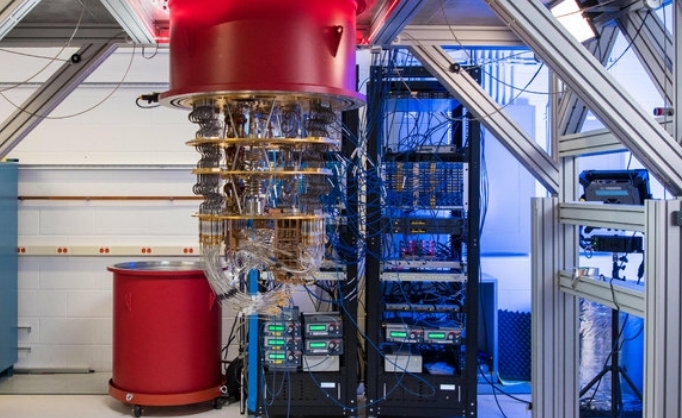
The key to quantum computing is the ‘qubit’.
The tool Google used to perform the calculation is a near-mythical device known as the quantum computer, which operates in a completely different manner from regular computers, relying on the mind-bending ways some objects act at the subatomic level.
Traditional computers perform calculations by processing “bits” of information, with each bit holding one of two values: a 1 or a 0. A collection of eight bits — known as a byte — can store a single character, like the letter A.
A quantum computer, on the other hand, processes bits built by scientists that can exist as both a 1 and a 0 simultaneously. So, whereas two traditional bits hold only two values, a pair of these so-called “qubits” can hold four values at once.
And as the number of qubits grows, a quantum computer becomes exponentially more powerful — three qubits hold eight values, four qubits hold 16 and so on. That makes today’s supercomputers look like toys.
“Imagine you had 100 perfect qubits,” said Dario Gil, the head of IBM’s research lab in Yorktown Heights, N.Y., in a recent interview. “You would need to devote every atom of planet Earth to store bits to describe that state of that quantum computer.”
Source: David Yaffe-Bellany, The New York Times.












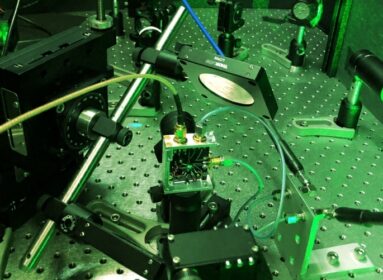

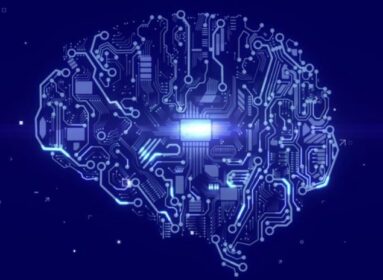











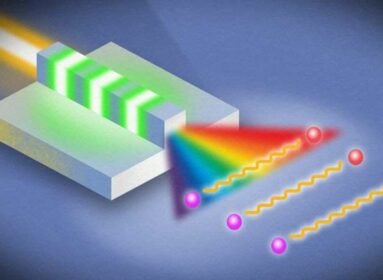





































Comments are closed.